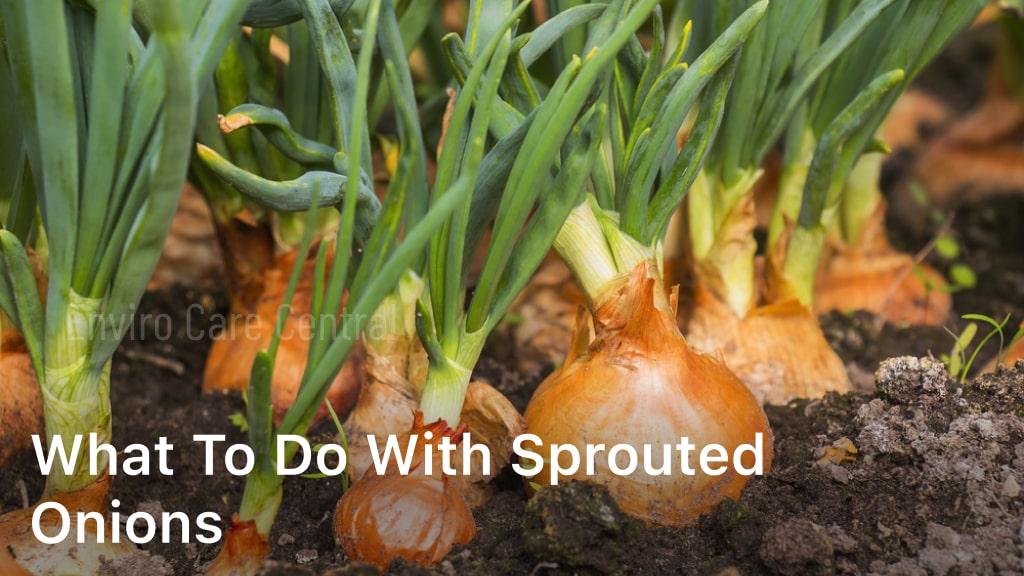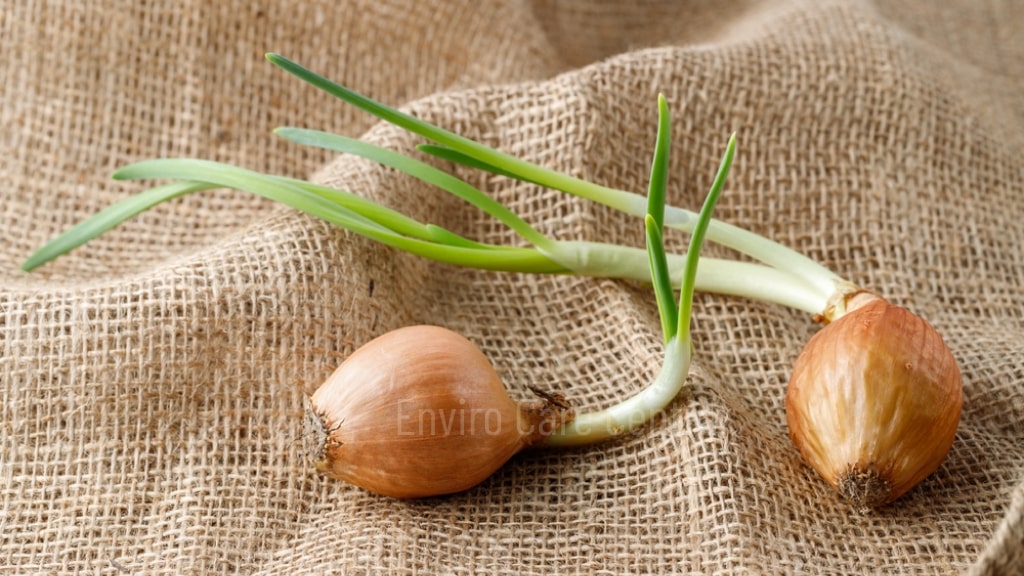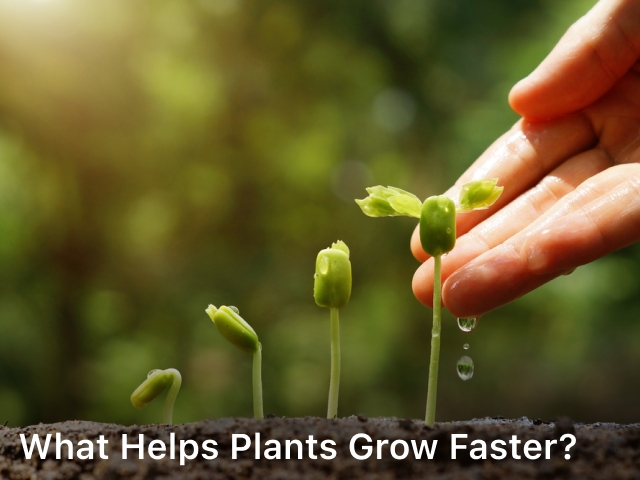What to Do with Sprouted Onions

envirocarecentral.com. Discover what to do with sprouted onions! Turn them into delicious meals or regrow them for a sustainable, healthy kitchen. Get inspired now!
Have you ever opened your pantry or kitchen drawer to find sprouted onions? It may be tempting to toss them in the trash, but don’t be so quick to discard them! Sprouted onions can offer unique culinary opportunities and even provide sustainable solutions for your kitchen.
In this article, we will explore various ways to make the most of sprouted onions. From cooking to regrowing, we’ll share tips and tricks for using and handling, as well as the potential benefits they offer. So before you toss those, read on and discover how they can be a valuable addition to your kitchen.
Cooking with Sprouted Onions
Don’t let those sprouted onions go to waste! You can still use them in your cooking and add a unique twist to your favorite dishes. The sprouts give the onions a milder taste, perfect for those who find raw onions too pungent.
Here are some creative ways to incorporate sprouted onions in your meals:
Roasting
Roasted sprouted onions are a great addition to any meat or vegetable dish. Simply cut the sprouted onion into wedges and toss with olive oil, salt, and pepper.
Roast in the oven at 400°F for 20-25 minutes, until golden brown and caramelized. Serve as a side dish or use as a topping for salads or sandwiches.
Stir-Frying
Sprouted onions add a delicious crunch and mild onion flavor to stir-fries. Cut the sprouted onion into thin slices and stir fry with your favorite vegetables and protein. Add soy sauce, garlic, and ginger for a tasty Asian-inspired dish.
Soup and Stews
Chop up the sprouted onion and use it as a base for soups and stews. The sprouts add an extra layer of flavor and texture to your favorite soup recipes. Try it in a classic French onion soup or any hearty stew recipe.
Tip: If your sprouted onion is starting to soften or mold, simply cut away the bad parts and use the rest as normal.
With these creative ways to use sprouted onions, you’ll never throw them away again. But what if you want to regrow your sprouted onions? Keep reading to learn how.

Regrowing Sprouted Onions
If you’ve ever had onions sprout in your pantry, don’t throw them away just yet. You can actually regrow and enjoy a bountiful harvest. Here’s what to do with a sprouting onion:
- Cut off the top inch of the sprouted onion, including the green shoots.
- Peel away the outer layer of the onion to reveal the fresh, healthy layers underneath.
- Fill a jar or glass with water and place the onion top-down in the container, with the cut end submerged in water.
- Place the jar in a sunny spot and change the water every few days to keep it fresh.
- Watch as the onion begins to regrow new green shoots and roots.
- Once the roots have grown about an inch long, you can transfer the onion to a pot or garden bed to continue growing.
Regrowing onions from sprouts is a sustainable way to reduce food waste and enjoy fresh produce without having to buy new onions.
Tips for Regrowing Onions
To ensure your regrow successfully, follow these tips:
- Use fresh onions that have not been in storage for too long.
- Change the water in the jar frequently to prevent bacteria growth and keep the roots healthy.
- Plant the onions in well-draining soil and water them regularly to keep the soil moist.
- Harvest the onions when the green shoots have died back and the bulbs are fully grown.
Now that you know what to do with an onion that has sprouted, you can turn your kitchen scraps into a thriving garden and enjoy the satisfaction of growing your own produce.
Benefits of Using Sprouted Onions
Sprouted onions offer unique culinary and health benefits that may surprise you. Despite their wilted appearance, these onions can still provide robust flavor, texture, and nutrition to your meals. Here are some compelling reasons to make use of sprouted onions:
Nutritional Value
Sprouted onions contain more nutrients compared to fresh ones. Studies have shown that sprouting enhances the levels of vitamins, minerals, and antioxidants in onions.
For instance, have higher amounts of vitamin C, folic acid, and quercetin, a potent antioxidant that exhibits anti-inflammatory properties. By incorporating into your meals, you’ll be boosting the nutritional density of your food.
Health Benefits
Sprouted onions may have potential health benefits beyond basic nutrition. Some studies suggest that sprouted onions contain compounds that may help lower blood pressure, cholesterol, and glucose levels.
Additionally, they may have antibacterial and antimicrobial properties that could support immune system function and protect against infections. While further research is needed to confirm these benefits, sprouted onions can still make a healthful addition to your diet.
Sustainable Kitchen
Regrowing sprouted onions can help reduce food waste and save money. Instead of tossing out sprouted onions, you can plant them in a pot or garden to produce more onions.
This method, known as regrowing, is simple and cost-effective, and can provide a steady supply of fresh onions in the long run. By regrowing, you’ll be adopting a more sustainable lifestyle and contributing to a greener planet.
Storing and Handling Sprouted Onions
Proper storage and handling of sprouted onions can help maintain their freshness and flavor, preventing spoilage and waste. Here are some tips and best practices:
- Store sprouted onions in a cool, dry, and well-ventilated area. Avoid storing them in plastic bags or airtight containers as they need to breathe.
- Do not store with other vegetables or fruits as they release gases that can accelerate spoilage.
- You can also store in the refrigerator, but use them within a week. However, refrigeration can also cause their texture to become soft and mushy.
- Handle gently as their sprouts are fragile and can easily break off. Avoid cutting off the sprouts as they contain most of the onion’s nutrients.
Creative Uses for Sprouted Onions
Sprouted onions can be used for more than just cooking. In fact, there are many creative ways to utilize, including:
- Composting: If you have a compost pile can be added to it. The decomposing onions will provide beneficial nutrients for your soil and plants.
- Natural Cleaning Solutions: Onions contain antimicrobial properties that make them a great natural cleaning agent. When combined with vinegar or lemon juice, can create an effective all-purpose cleaner for your home.
- Craft Projects: The unique shape and texture make them great for artistic endeavors. Consider using them as stamps to create a pattern on paper or fabric.
Comparison of Sprouted Onion Uses
| Use | Benefits |
|---|---|
| Cooking | Enhances flavor of dishes |
| Regrowing | Produces a sustainable source of onions |
| Composting | Provides nutrients for soil and plants |
| Natural Cleaning Solutions | Offers a chemical-free cleaning alternative |
| Craft Projects | Allows for artistic expression and creativity |
As you can see, there are many different ways to utilize, each with their own unique benefits. Don’t let those sprouts go to waste – get creative and see what you can come up with!
Conclusion
May seem like a nuisance in the kitchen, but they offer various opportunities beyond their initial purpose. In this article, we have explored ways to make the most of sprouted onions, whether by cooking with them, regrowing them, or utilizing them in alternative ways.
By using in cooking, you can add a unique flavor to your dishes and reduce food waste. With our tips on regrowing sprouts, you can enjoy an ongoing supply of fresh onions in your kitchen. Additionally, offer various health benefits, including their high antioxidant content.
Storing and handling properly is crucial to preserve their freshness and prevent spoilage. By following our best practices, you can ensure that your sprouted onions remain usable for longer.
Finally, consider exploring creative uses fo, such as using them in compost or natural cleaning solutions. With a little creativity, you can turn what might have been kitchen waste into useful resources.
As a final note, remember that sprouted onions are safe to use, so don’t be afraid to experiment and discover new ways to incorporate them into your life in a sustainable way.





